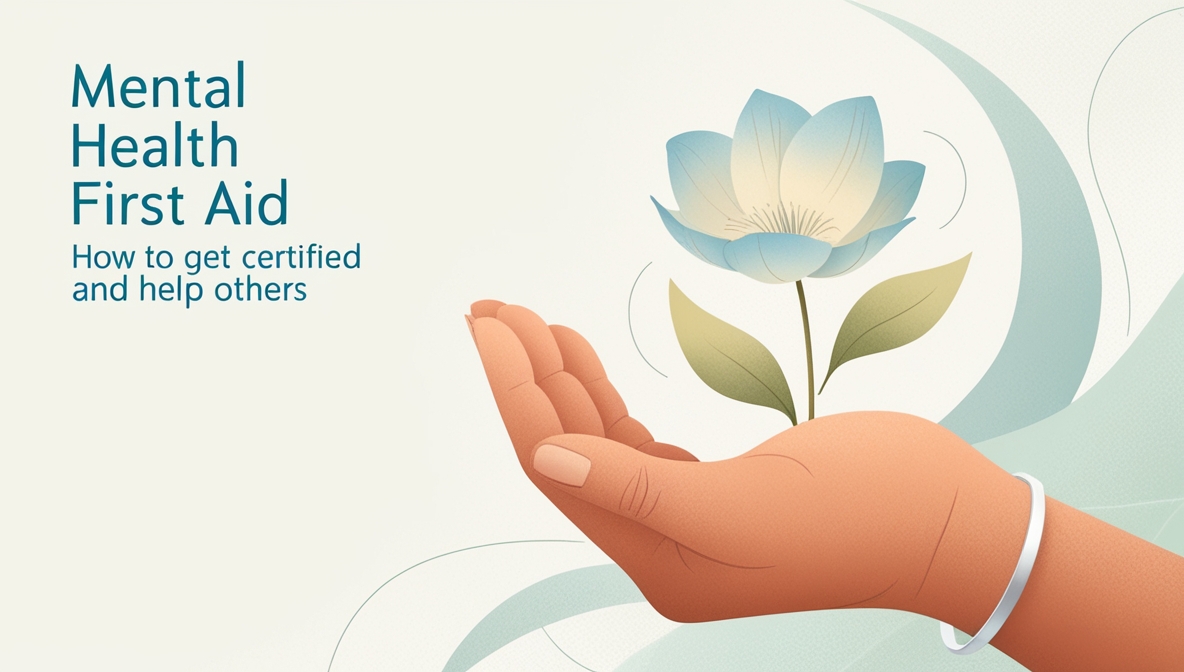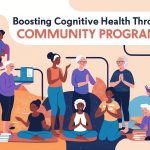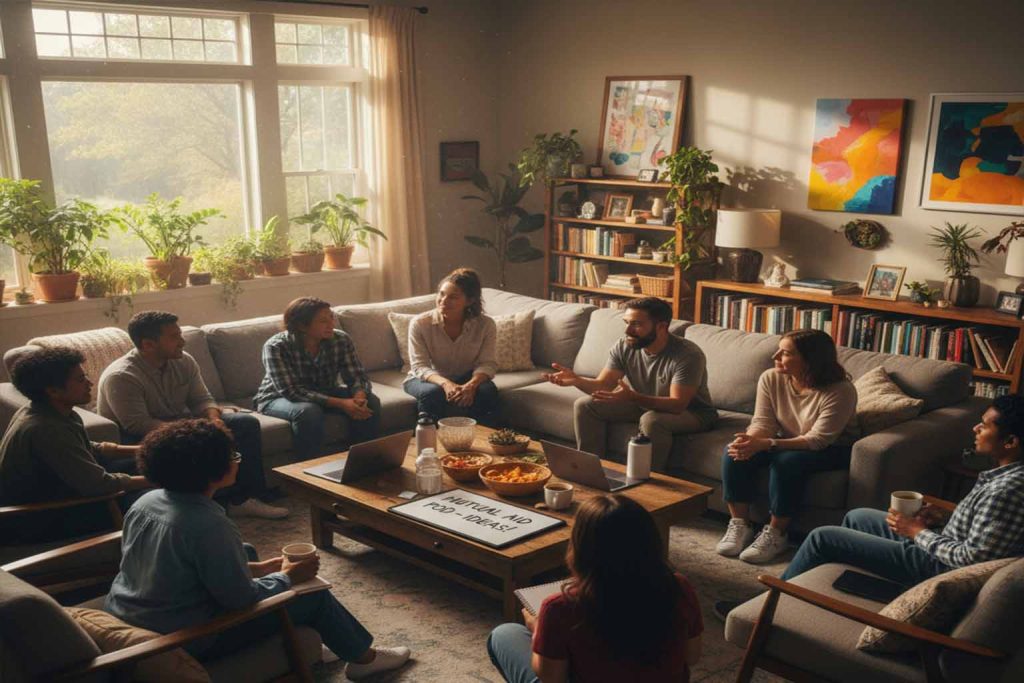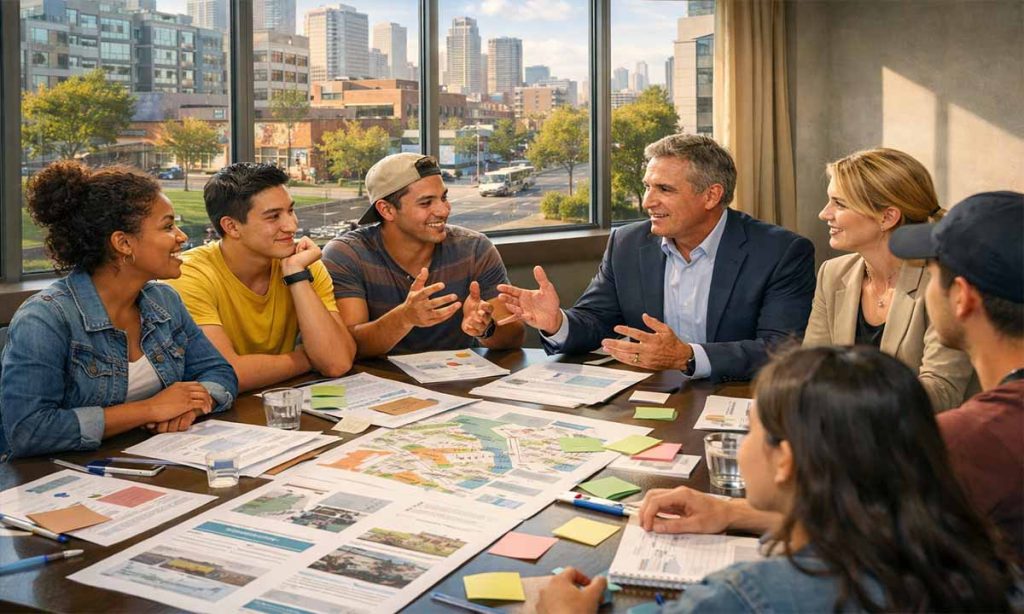Mental health first aid equips individuals with the knowledge and skills to support those experiencing mental health challenges. Like traditional first aid, it provides immediate assistance during a mental health crisis. By getting certified, you’ll gain tools to identify signs of mental distress, offer initial support, and guide someone toward professional help if needed. Here’s how to become certified and effectively assist those in need.
Why Mental Health First Aid Matters
Mental health crises can occur at any time, and having trained people ready to respond can prevent escalation and provide critical support. Certified individuals serve as essential bridges between those experiencing mental health struggles and the resources they may need. The training also helps reduce stigma around mental health, encouraging open dialogue and understanding within communities.
Steps to Get Certified in Mental Health First Aid
1. Research Available Certification Programs
- Mental Health First Aid (MHFA): The most widely recognized program, MHFA provides a comprehensive course on identifying and responding to mental health issues. It’s available in many countries and offers both in-person and virtual classes.
- Youth Mental Health First Aid (YMHFA): Aimed at adults who work or interact with youth, this program teaches strategies for supporting young people facing mental health challenges.
- Specialized MHFA Programs: Certain organizations provide MHFA courses tailored to specific groups, such as workplaces, first responders, or schools.
2. Sign Up for a Course
- Visit the website of your chosen program, such as the MHFA’s official site, to find upcoming courses near you or online.
- Courses generally span 8-12 hours, typically divided into manageable sessions.
- Costs may vary, so check for scholarships or employer support to help cover fees.
3. Attend Training Sessions
- Format: Courses may be in-person, virtual, or hybrid. Each format has interactive components where participants engage in discussions, watch videos, and practice skills.
- Content: Expect modules covering a range of mental health issues, from anxiety and depression to crisis situations like substance abuse or suicidal thoughts.
- Skills Building: Practice how to approach someone, engage in a conversation about mental health, listen without judgment, and provide appropriate guidance.
4. Pass the Course Assessment
- After completing the course, participants often take a short assessment to test their understanding.
- Passing the assessment demonstrates a basic proficiency in the skills covered, and it typically results in a certificate valid for a few years.
5. Stay Current with Mental Health Resources
- MHFA and similar programs encourage certified individuals to refresh their knowledge periodically. This may include retaking courses, attending workshops, or staying updated on new mental health resources and guidelines.
Core Skills Learned in Mental Health First Aid
Certification programs focus on several practical skills essential for supporting someone in crisis. These skills can be remembered with the acronym ALGEE:
- Approach, Assess, and Assist
- Begin by recognizing signs of mental distress. Calmly approach the person, assess the situation, and determine if immediate assistance is required.
- Listen Nonjudgmentally
- Active listening is crucial. Avoid interrupting or expressing judgment. Create a safe space where the person feels heard and understood.
- Give Reassurance and Information
- Reassure the person that mental health challenges are common and help is available. Provide reliable information about symptoms and recovery, avoiding any medical advice unless you’re trained to do so.
- Encourage Appropriate Professional Help
- Suggest professional resources, such as therapists, counselors, or support groups, when appropriate. The goal is to connect the person with a professional who can provide long-term support.
- Encourage Self-Help and Other Support Strategies
- Introduce self-help techniques and healthy coping strategies. This can include stress management, physical activity, and other practices that contribute to mental well-being.
Mental Health Conditions Addressed in MHFA
Certified mental health first aiders learn to recognize and respond to a range of common conditions, including:
- Depression and Anxiety: Recognize symptoms such as prolonged sadness, hopelessness, or extreme worry. Offer a listening ear, understanding that these feelings may interfere with daily functioning.
- Panic Attacks: Respond calmly if someone experiences intense fear or panic. Guide them to focus on breathing and offer support until symptoms subside.
- Substance Use Disorders: Offer resources for professional help without judgment. Be aware that substance use can co-occur with other mental health issues.
- Psychosis: For symptoms like delusions or hallucinations, ensure the person’s safety and encourage a visit to a mental health professional.
- Suicidal Thoughts or Self-Harm: If someone expresses thoughts of suicide or self-harm, take them seriously. Listen without judgment and guide them toward immediate professional support.
How Mental Health First Aid Benefits Communities
By training individuals in mental health first aid, communities benefit in various ways:
- Early Intervention: Early identification and support can prevent mental health issues from worsening. Trained individuals can respond to symptoms before they escalate.
- Reduced Stigma: Open conversations about mental health foster a more accepting environment, encouraging those who need help to seek it without shame.
- Increased Awareness: Certified individuals raise awareness about mental health issues and available resources, making mental health support more accessible to all.
- Enhanced Workplace Support: Many workplaces encourage or fund MHFA certification. Certified employees create a more supportive work environment and can assist colleagues facing challenges.
Hosting events like a community health fair can bring awareness to mental health resources, allowing residents to connect with local support and information on mental wellness. Beyond addressing mental health directly, initiatives like community physical activity programs can complement mental wellness by promoting holistic health.
Choosing the Right Program for You
Each mental health first aid certification program has unique offerings. Here are a few options based on specific needs:
- General Adult MHFA: Best for those interacting primarily with adults, covering common mental health conditions and crisis situations.
- Youth MHFA: Ideal for teachers, youth workers, and parents, this program addresses mental health issues specific to adolescents and young adults.
- Public Safety MHFA: Designed for police officers, firefighters, and EMS personnel, this course includes strategies for handling mental health crises in high-stress environments.
- Workplace MHFA: Tailored to corporate settings, this program helps create a supportive environment for employees, emphasizing mental well-being in professional spaces.
How to Be an Effective Mental Health First Aider After Certification
Once certified, practice these strategies to maximize your effectiveness:
- Be Observant
Recognize subtle signs of mental distress in those around you. Pay attention to changes in behavior, mood, or energy levels that may indicate underlying mental health struggles. - Be Ready to Listen
Show empathy and patience when someone shares their struggles. Avoid offering solutions right away; instead, allow the person to share openly. - Build a Resource List
Compile a list of local mental health professionals, support groups, and helplines. Having resources on hand allows you to guide people to the appropriate support. - Practice Self-Care
Supporting others can be challenging, so prioritize your mental well-being. Engage in stress-relieving activities, seek support when needed, and set boundaries.
Making a Difference: Stories from Certified Mental Health First Aiders
Many certified individuals share that their training has allowed them to make a tangible difference in their communities:
- A youth mentor helped a high school student connect with a counselor after noticing signs of anxiety.
- A workplace MHFA participant guided a colleague to resources for substance use support.
- A teacher with YMHFA certification identified signs of depression in a student and facilitated a conversation with their parents and school counselor.
Finding a Mental Health First Aid Course Near You
- Online Directories: Visit the MHFA website to find certified instructors and courses in your area. Search by location or course type.
- Local Health Departments: Many public health organizations offer MHFA training or can recommend certified instructors.
- Nonprofits and Mental Health Organizations: Groups focused on mental health often host training sessions and can direct you to upcoming courses.
Many local health departments and nonprofits offer community health and wellness workshops alongside mental health first aid courses, broadening resources for both physical and mental health.
Final Thoughts
Getting certified in mental health first aid enables you to be a supportive presence in times of mental health crises. With the right skills, you can assist those around you and play a part in reducing the stigma surrounding mental health. By building a community of trained individuals, we all contribute to a more understanding, empathetic, and supportive society.






